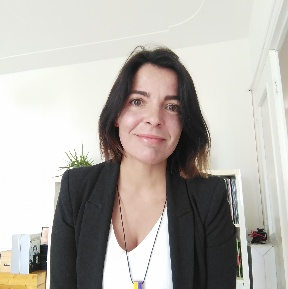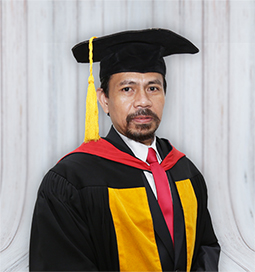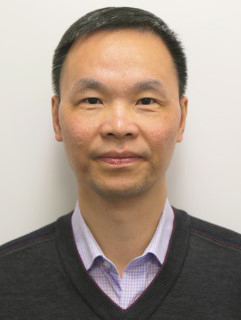| Prof. Margarida RomeroUniversitat Internacional de Catalunya (Spain) and Université Côte d'Azur (France) Brief introduction: Margarida Romero is an associate professor at Universitat Internacional de Catalunya (Spain) and full professor at Université Côte d'Azur (France). After starting her career at the Universitat Autonoma de Barcelona, where she was awarded the best doctoral thesis in psychology, she continued her career in Canada and France. She is an international expert, collaborating with OECD, UNESCO, and European organisations. In France, she coordinates the #Scol_IA Working Group on the educational challenges of artificial intelligence in education and codirects the international MSc SmartEdTech program. Her research focuses on the study of transversal competencies, particularly in relation to computational thinking and creative problem-solving. Title of Keynote Speech: From Passive Consumption to Human-AI Creative Collaboration: Rethinking AI in the Classroom Abstract: As artificial intelligence becomes increasingly embedded in educational tools and practices, a critical question emerges: Are we using AI to support or replace human learning? This keynote challenges the growing trend of passive AI adoption in education and argues for a paradigm shift toward effortful, critical, creative, and collaborative uses of AI. Passive engagement with AI risks diminishing cognitive effort, weakening pedagogical intent, and eroding both teacher and learner agency. In contrast, when integrated with intentional design and human-centered values, AI can serve as a powerful co-creative partner that enhances reflection, critical thinking, and agency. Building on the #PPAI6 framework and recent research in hybrid intelligence and co-creativity, this talk outlines how educators and students can co-design AI-supported learning experiences that uphold educational purpose and ethical responsibility. We explore models of participatory engagement where both students and teachers actively shape how AI is used, resisting automation-led paradigms in favor of inclusive, reflective, and context-sensitive practices. This keynote calls for institutions to move beyond technological determinism and foster a culture in which AI is not the driver of pedagogy, but a thoughtfully integrated tool that supports human development, effort, and imagination. |
| Prof. Deni DarmawanUniversitas Pendidikan Indonesia, Indonesia Brief introduction: Deni Darmawan is a Professor with the Highest Hi-Index, 88 and Totally Citation 11952 on Google Scholar of all professors in the Indonesian Education University. In 2021 until now has been ranked first in the field of Bio-communication Through ICT Implementation from ADScientific Index 2023 information can be accessed at https://www.adscientificindex.com/? con=&country_code =id . 2022 Get the first rank from a professor at UPI for the same. In University Level he is as The First Rank in Educational Research Bio-communication and Artificial Intelligence (AI) for Big Data Digital Management. In 2021 Have the new Intellectual Property Rights Oriented Products about Virtual Community Digital Learning Nusantara (VCDLN) from the Ministry of Human Rights of the Republic of Indonesia. In October,20-21 2022 he publish the Database of VCDLN-TVUPI and Developed of Super-App Mobile VCDLN-Learning version 1.1., and has presented in Vancouver Canada and October 28-29, 2022 in University of Quebec Montreal. The Last presented of VCDLN he take in November 9-11, 2022 at National University of Villa Maria (UNVM-Argentina). Currently, he is a Lecturer at the Department of Communication Science at the University of Education of Indonesia, with expertise in Computer-Mediated Communication (CMC), Development of Communication Technology Bio-communication. Since 2013 in Mexico at the Orbicom Conference, he has contributed research papers, until now as an active Orbicom member. In 2021, 2022, and 2003, Deni Darmawan have Highest Researcher and innovator Awards from Ministry of Education Culture and Research Technology of Republic Indonesia. Since 2019, his expertise has been in Communication Technology for education and Culture in developing information system technology networks and Long Distance Network Television Technology. Most of his international research is in the field of Information and Communication Technology for education and Communication science. In 2018 he was selected as the First Rank Outstanding Lecturer in the Faculty of Education. He have written 20 articles with reputable international publications indexed by Scopus have been published with Hi-5 in Scopus Preview-Elsevier publication. He has written 18 international books and 35 National books. Currently, Deni is one of the reviewers of the publisher Web of Science; Springer and Pablon Publisher. Now, Deni is also active as a reviewer for several international journals indexed by Scopus, including IJAER; SAGE; International Journal Computer Science; ASTES; iJIM; and John Wiley International Journal Publisher; Springer and Clarivate and Pablon. Currently, Deni manage and becomes a reviewer for several national journals: Journal of Human Relations « Gunahumas, » Educational Technology; Pedagogy; Journal of Instructional Technology; Development Communication; Communication Studies; Journal of Educational Communication Technology at the Ministry of Education and Culture of the Republic of Indonesia; Education Policy in The Ministry of Education and Culture of the Republic of Indonesia; Kwangsan Journal of Media Communication Technology at the Ministry of Education and Culture of the Republic of Indonesia has obtained the Rank of Indonesian Scientists at position 216 out of 626 Indonesian scientists. Currently, the Ministry of Education’s SINTA score is 1313.5. i10-Index on Google Scholar of 93. Scopus Document 20 and Scopus Index- 5. Famous research in 2018-2019, professor Deni developed the Integrated Communication Laboratory Simulator Version 1.0 and Version 2.0 prototype, the prototype was presented at Tsuru University, Japan and Yunani. Title of Keynote Speech: TBC Abstract: TBC |
| Prof. Huiyu ZhouUniversity of Leicester, UK Brief introduction: Dr. Huiyu Zhou received a Bachelor of Engineering degree in Radio Technology from Huazhong University of Science and Technology of China, and a Master of Science degree in Biomedical Engineering from University of Dundee of United Kingdom, respectively. He was awarded a Doctor of Philosophy degree in Computer Vision from Heriot-Watt University, Edinburgh, United Kingdom.Dr. Zhou currently is a Reader at Department of Informatics, University of Leicester, United Kingdom.He has published over 150 peer-reviewed papers in the field. He was the recipient of "Computer Vision and Image Understanding 2012 Most Cited Paper Award", “International Conference on Pattern Recognition Applications and Methods (ICPRAM) 2016 Best Paper Award” and was nominated for “ICPRAM 2017 Best Student Paper Award” and "Medical & Biological Engineering & Computing 2006 Nightingale Prize". Four of his papers recently published by Elsevier were ranked as theScienceDirect Top 25 Articles. Dr. Zhou serves as the Editor-in-Chief of Recent Advances in Electrical & Electronic Engineering and Associate Editor of "IEEE Transaction on Human-Machine Systems", and is on the Editorial Boards of five refereed journals.He is one of the Technical Committee of “Information Assurance & Intelligent Multimedia-Mobile Communication in IEEE SMC Society”, “Robotics Task Force” and “Biometrics Task Force” of the Intelligent Systems Applications Technical Committee, IEEE Computational Intelligence Society.He has given over 50 invited talks at international conferences, industry and universities, and has served as a chair for 30 international conferences and workshops. His research work has been or is being supported by UK EPSRC, MRC, EU, Royal Society, Leverhulme Trust, Puffin Trust, Invest NI and industry. Title of Keynote Speech: Fairness in AI for healthcare and a case study for inflammatory arthritis Abstract: Fairness in artificial intelligence (AI) increasingly attracts the attention of the community. AI models become unfair if there are unjustifiable differences in outcomes due to the membership of a marginalised group. When AI models are unfair, their results may severely influence patient safety and those using the AI models. In this talk, first of all, we will introduce the concepts of bias and fairness in AI. We then discuss the possible impacts due to bias and unfairness in AI for healthcare, in particular, potential solutions to handle known bias and discrimination. Secondly, we will discuss a case study for identification of inflammatory arthritis using UK Biobank data, where fairness analysis plays a key role to ensure justified detection results. Finally, we will summarise this talk. |



